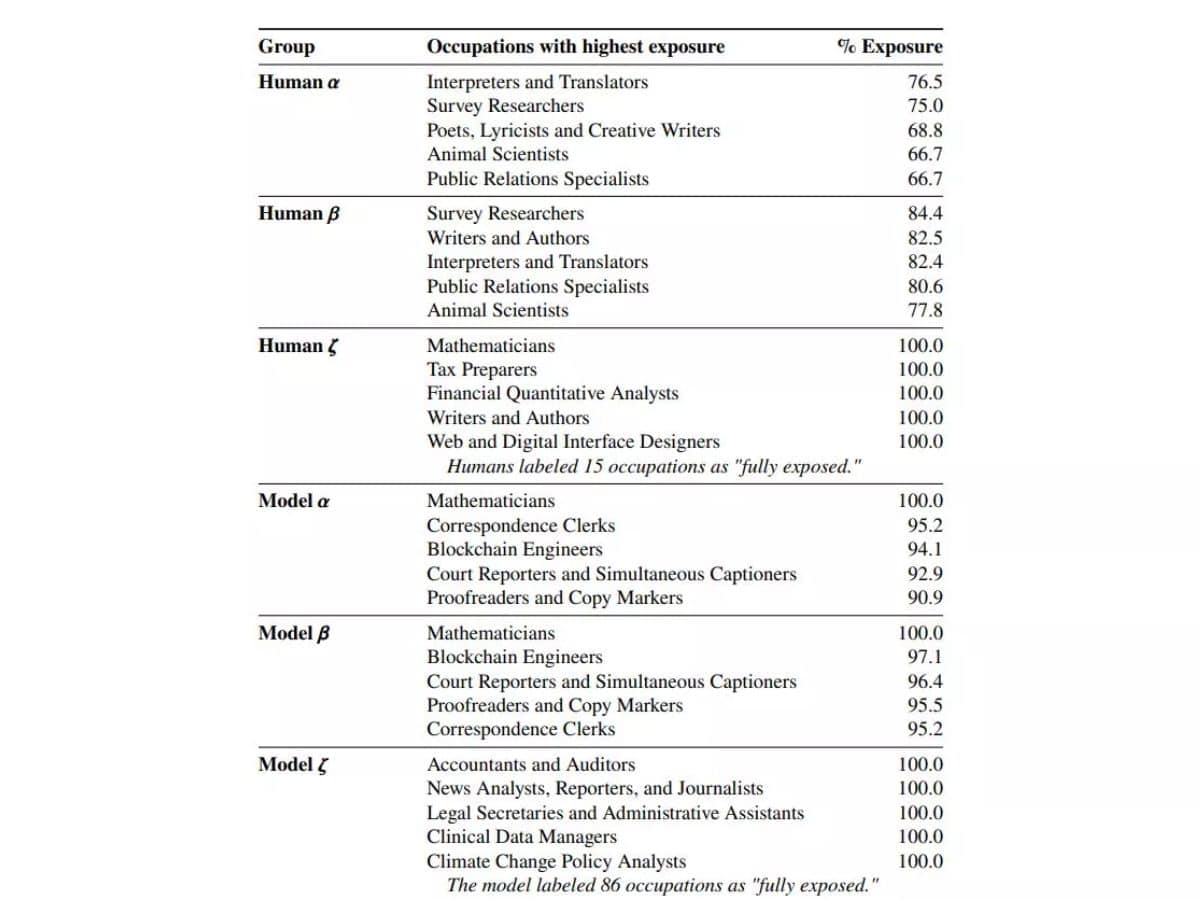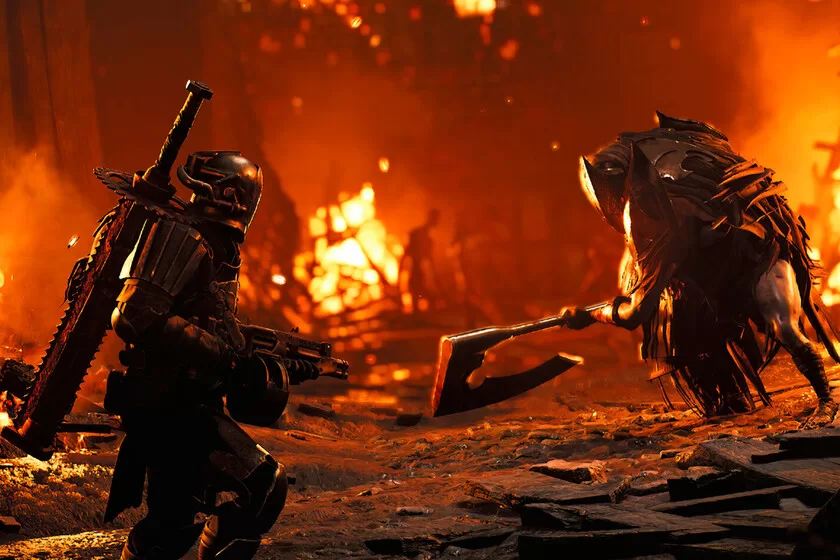OpenAI researchers have tackled the question that plagues everyone in 2023: Will ChatGPT put me out of work? Using data from the US Department of Labor, the researchers were able to compile a list of occupations most at risk.
In February, we asked ChatGPT if it was going to put us all out of work. His answer was obviously positive in terms of its impact on the economy and employment. Nevertheless, the IA specified that “lTechnologies such as language models can automate certain tasks, which can lead to a reduction in the workforce in certain sectors“. On this last point, researchers from OpenAI and the University of Pennsylvania conducted a study to determine what consequences ChatGPT could have on the workforce.
Physical trades spared by ChatGPT
With the advent of GPT-4, the capabilities of ChatGPT have been multiplied and you are told how to use the new version of the AI here. Its abilities now allow it to replace or assist work in many categories of trades. The consequences are already tangible since the CNET site prefers to use AI and dismissed twelve journalists at the beginning of March.
According to the study, it is above all the best-paid professions that will be affected by AI, first and foremost those in the “information processing industries“. This is because jobs requiring “programming and writing skills” are the most in line with the capabilities of generative AI. Thus, the impact of GPT on jobs increases as salaries approach $80,000 per year. Logically, these are also the professions that require the highest level of education: workers with a bachelor’s or master’s degree run a high risk of being laid off by ChatGPT.
Read: ChatGPT does the job of employees, 55% of bosses are satisfied
On the contrary, lower paid workers, usually involving physical tasks in “manufacturing, agriculture and mining” are the least exposed. . It makes sense: it’s hard to see how ChatGPT could lift anything heavy. In the same logic, workers with a high school diploma or professional training such as a CAP will not suffer any consequences from the advent of AI.
The list of professions most affected by ChatGPT
Using data from the US Department of Labor, the researchers found that up to 80% of the workforce could see “at least 10% of its assigned tasks” by GPT and that 19% of workers “could see at least 50% of their tasks affected“.
Here is the list of trades, ranked by percentage of exposure to GPT capabilities. “Exhibition” is understood here as “the economic impact, without distinguishing between the effects of increasing or displacing the workforce“.
- Mathematicians 100.0
- Tax Preparers 100.0
- Quantitative Financial Analysts 100.0
- Writers and authors 100.0
- Web and digital interface designers 100.0
- Accountants and auditors 100.0
- Analysts, reporters and journalists 100.0
- Legal secretaries and administrative assistants 100.0
- Clinical Data Managers 100.0
- Climate change policy analysts 100.0
- Blockchain Engineers 97.1
- Simultaneous court clerks and captioners 96.4
- Proofreaders or spell checkers 95.5
- Correspondence clerk 95.2
- Humanities researchers 84.4
- Writers and authors 82.5
- Interpreters and translators 82.4
- Public relations specialists 80.6
- Animal scientists 77.8
- Survey researchers 75.0
- Poets, lyricists and creative authors 68.8
This list is a summary by us of the results of the study. It’s a simplification. Indeed, the researchers established several types of measures to find the most affected professions. Some professions are less affected in one measurement model than in another. We therefore removed the double occurrences by keeping the highest exposure percentage for each model. In some cases, the degree of exposure per model is the same, such as for mathematicians who are systematically evaluated at 100%. The complete result by model is below:

An imperfect study on the future of employment
The researchers acknowledge that the study is not perfect that it does not predict the future. They nevertheless conclude that it is possible that generative AI models make “more efficient human labor“. That’s exactly the answer ChatGPT gave us when we asked it. The researchers add, however, that “social, economic and regulatory factors” could influence actual employment outcomes.
“As capabilities continue to evolve, GPT’s impact on the economy will likely persist and increase, posing challenges for policymakers to predict and regulate their trajectory. Further research is needed to explore the broader implications of advances in GPT, including their potential to augment or replace human labor, their impact on job quality, inequality, skills development and on many other results.”
Source : OpenAI

